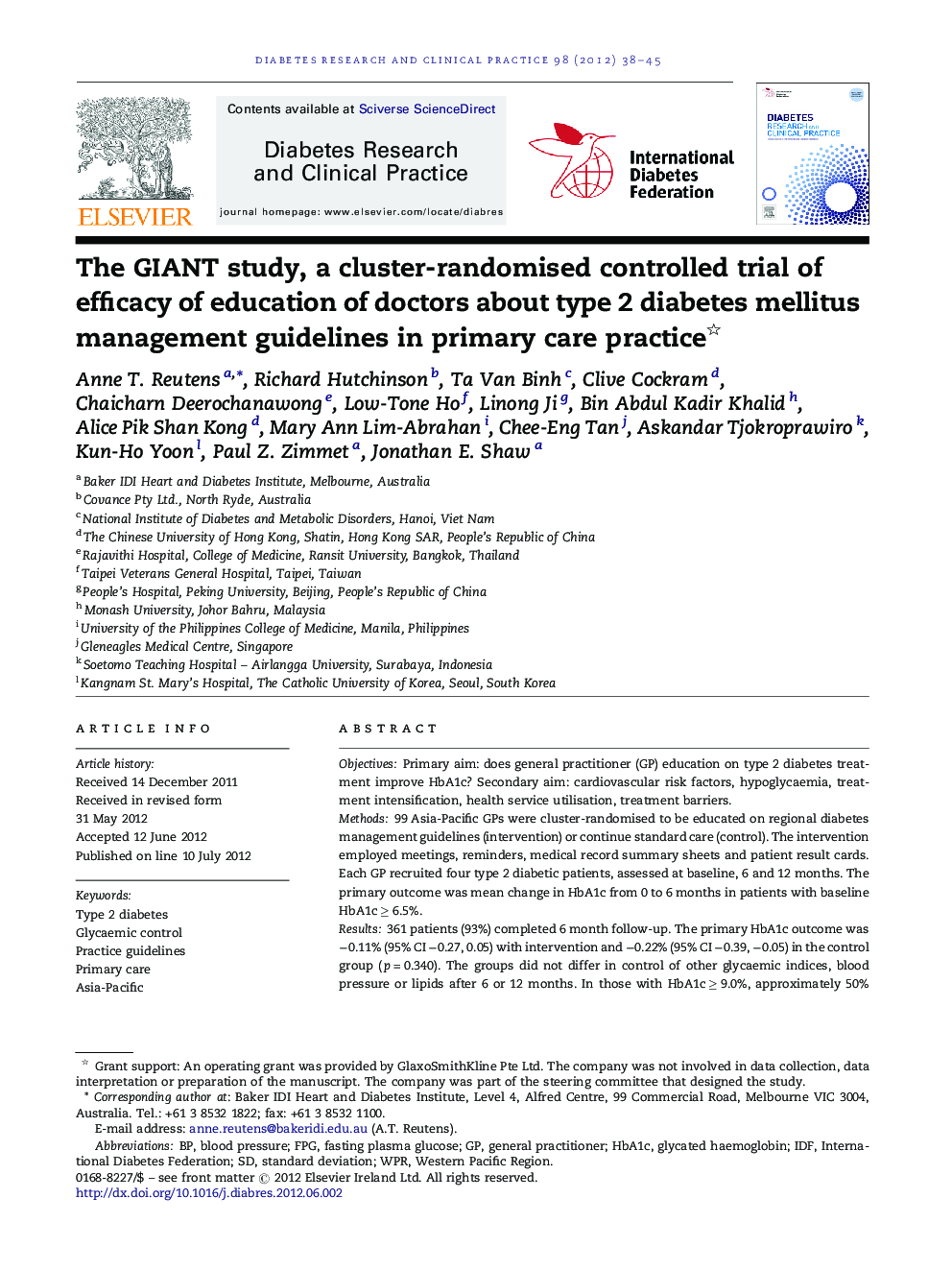| Article ID | Journal | Published Year | Pages | File Type |
|---|---|---|---|---|
| 5899894 | Diabetes Research and Clinical Practice | 2012 | 8 Pages |
ObjectivesPrimary aim: does general practitioner (GP) education on type 2 diabetes treatment improve HbA1c? Secondary aim: cardiovascular risk factors, hypoglycaemia, treatment intensification, health service utilisation, treatment barriers.Methods99 Asia-Pacific GPs were cluster-randomised to be educated on regional diabetes management guidelines (intervention) or continue standard care (control). The intervention employed meetings, reminders, medical record summary sheets and patient result cards. Each GP recruited four type 2 diabetic patients, assessed at baseline, 6 and 12 months. The primary outcome was mean change in HbA1c from 0 to 6 months in patients with baseline HbA1c â¥Â 6.5%.Results361 patients (93%) completed 6 month follow-up. The primary HbA1c outcome was â0.11% (95% CI â0.27, 0.05) with intervention and â0.22% (95% CI â0.39, â0.05) in the control group (p = 0.340). The groups did not differ in control of other glycaemic indices, blood pressure or lipids after 6 or 12 months. In those with HbA1c â¥Â 9.0%, approximately 50% received intensified treatment by 6 months, and 30% in the final 6 months. GPs identified treatment costs and patient reluctance to use insulin as management barriers.Conclusions/interpretationA structured GP education programme did not improve HbA1c in patients with type 2 diabetes.
